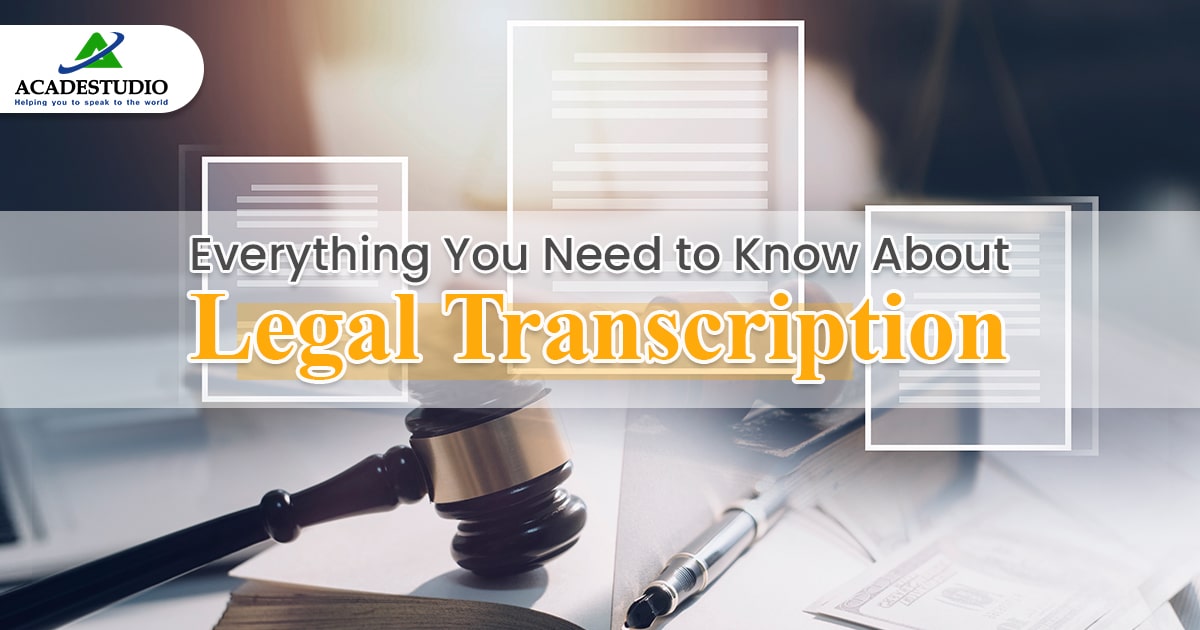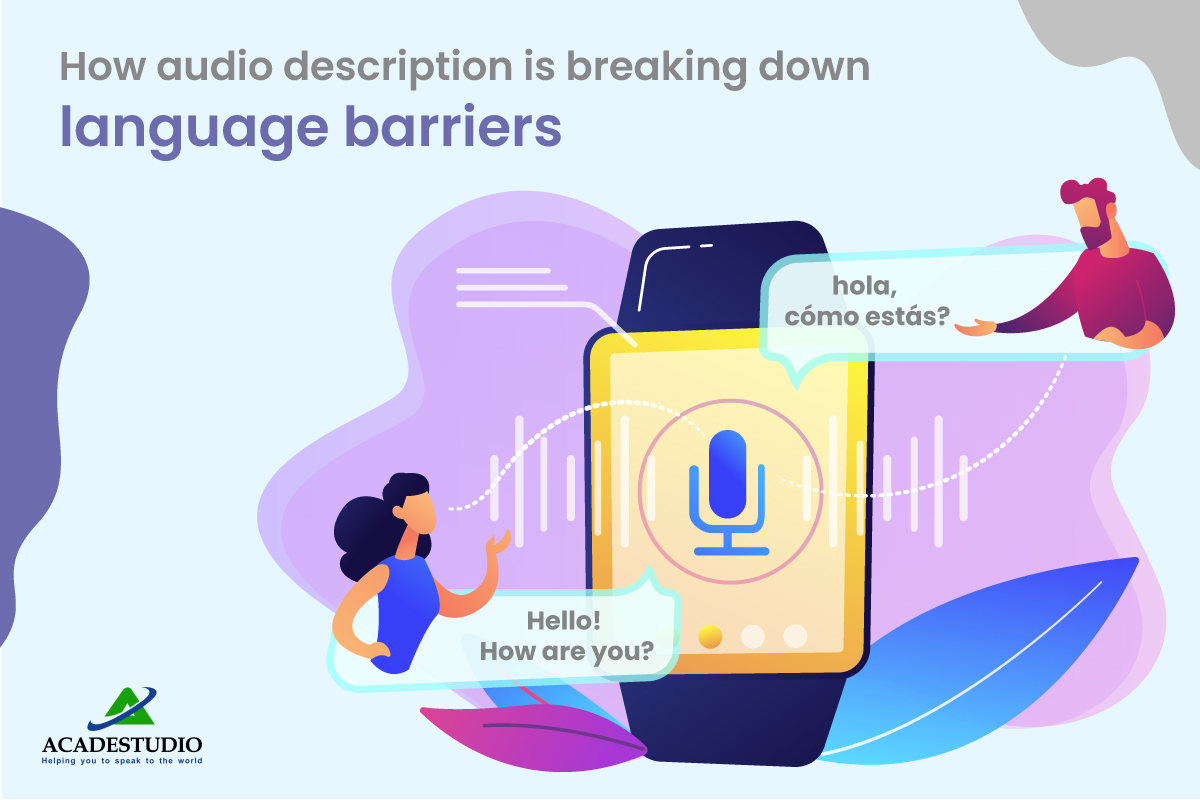Legal transcription is a
vital part of the legal industry, and our blog provides insights into its
importance, types, and procedure, making it a valuable resource for legal
professionals and those interested in this field.
What are Legal
Transcriptions?
Legal transcription
refers to converting audio and video recordings of legal proceedings into
written or typed documents. This transcription service is crucial for lawyers,
legal firms, and court reporters who need an accurate record of court hearings,
depositions, and other legal proceedings. The transcribed documents produced
from these recordings are further used as a piece of legal evidence. They also
make the information accessible to people not present at the legal proceedings.
They need to understand legal terminology well and be able to transcribe,
producing high-quality, error-free transcripts. These play a vital role in the
legal industry and are essential for ensuring the accuracy and accessibility of
legal records.
Importance
of Legal Transcriptions
- Provide a written record of audio and video
recordings related to legal proceedings, such as court hearings, depositions,
and arbitrations.
- Serve as legal evidence and uses case
preparation, analysis, and presentation.
- Make legal proceedings more efficient by enabling
legal professionals to review and analyze the recorded information without
listening to the entire audio or video recording.
- Useful for people not present during the
proceedings to understand what happened, said, and the case's outcome.
- These are also essential for compliance and
regulatory purposes.
- They help save time and money by making searching
and retrieving information easier.
- A key element in ensuring fairness and
transparency in legal proceedings.
- They are essential for creating an official and
verifiable record of events.
Types
of Legal Transcriptions
There are several types
of Legal Transcription Services available. Here we will know them in depth.
These are:
Court Transcriptions
Court transcriptions involve
the transcription of legal proceedings that take place in a court of law. These
proceedings can include trials, hearings, and other court-related events.
Accurate court transcripts are essential for the legal system to function.
Deposition
Transcriptions
A deposition is a
pre-trial process involving witnesses questioned under oath. Lawyers often use deposition
transcripts to prepare for trial and impeach a witness who gives inconsistent
testimony.
Legal Briefs
Lawyers submit legal
briefs as written arguments to a court or tribunal. Lawful transcriptionists
can assist in transcribing and documenting these briefs for future reference.
Arbitration
Transcriptions
Arbitration is an
alternative dispute resolution process that is often used instead of
traditional litigation. These transcriptions are for documenting the
proceedings and as evidence in court if necessary.
Administrative Hearing
Transcriptions
Administrative hearings
are like court hearings by government agencies rather than courts. Transcripts
of administrative hearings are often required for appeals or the record.
Witness Interviews
Witness interviews
conducted by lawyers, investigators, or other legal professionals. These
interviews transcribe for legal purposes, including trial preparation and
evidence gathering.
Sworn Statements
Sworn statements are
oral or written statements made under oath. These statements are transcribed to
create a permanent record of the statement.
Memorandums
Memorandums occur for
communication records between legal professionals, such as lawyers or
paralegals. Lawful transcriptionists can help transcribe these documents,
ensuring they are properly documented.
Interrogations
Interrogations are
questioning sessions conducted by law enforcement or other legal professionals.
Transcripts of these interrogations use as evidence in court.
Verbatim Transcriptions
Verbatim transcriptions
capture every word spoken during a legal proceeding, including filler words and
interruptions. Transcription Verbatim can capture the tone and context of a
conversation or proceeding.
What is the Process of
Legal Transcription?
As you know, transcription
plays a crucial aspect in the legal industry, as it provides a written record
of court hearings, depositions, and other legal proceedings. Following is a
step-by-step process of processing the transcription
- Firstly, use a digital recording device or software
to create an audio or video recording of the legal proceedings.
- Next, upload the recording to a computer or
cloud-based service accessible by the transcriptionist.
- Then, listen to the recording and transcribe it into
a written document, requiring knowledge of legal terminology and strong
listening and typing skills.
- After that, edit and proofread the document to
ensure accuracy and clarity.
- Additionally, format the document according to
client or court requirements, such as adding line numbers, timestamps, or
other formatting elements.
- Subsequently, conduct a final review to ensure the
document is error-free and meets formatting requirements.
- Finally, approve the document as an official record
of the legal proceedings.
Now, you know the
transcription procedure. However, many individuals get confused between
Transcriptions of Legal and Court Records. In the below section, we will
provide the exact answer to that.
Difference Between
Legal Transcriptions and Court Records
Legal professionals rely
on legal transcriptions and court records to support legal proceedings, but
these two documents have distinct differences. Firstly, transcriptionists
create written documents from audio or video recordings of legal proceedings,
such as depositions, hearings, or trials, requiring specialized knowledge of
legal terminology and strong typing and listening skills.
In contrast, courts
maintain official documents detailing a case's proceedings, rulings, and
outcomes. These documents, called court records, can include transcripts of
hearings or trials and other documents such as motions, orders, and judgments.
Additionally, court records serve as permanent case records, while
transcriptions are for specific purposes. Therefore, although transcriptions
and court records are important, they serve different functions in the legal
process.
Conclusion
In conclusion, legal transcriptions are a
valuable resource in the legal field, providing an accurate and detailed
written record of legal proceedings. Skilled transcriptionists with specialized
legal terminology knowledge and strong typing and listening skills create them.
These transcriptions are useful for lawyers, judges, and other legal
professionals, allowing them to reference and review information from the case
easily. Ultimately, these transcriptions of legal play an integral role in
supporting the legal system and ensuring justice serves fairly and
transparently.












- From Mobile - 11 min ago
Bring to the table win-win survival strategies to ensure proactive domination. At the end of the day, going forward, a new normal that has evolved from generation X is on the runway heading towards a streamlined cloud solution.
- From Mobile - 7 min ago
Capitalize on low hanging fruit to identify a ballpark value added activity to beta test. Override the digital divide with additional clickthroughs from DevOps. Nanotechnology immersion along the information highway
- From Web - 2 min ago
A new normal that has evolved from generation X is on the runway
- From Mobile - 11 min ago
Capitalize on low hanging fruit to identify a ballpark value added
- From Web - 2 min ago
Real-time will have multiple touchpoints for offshoring.